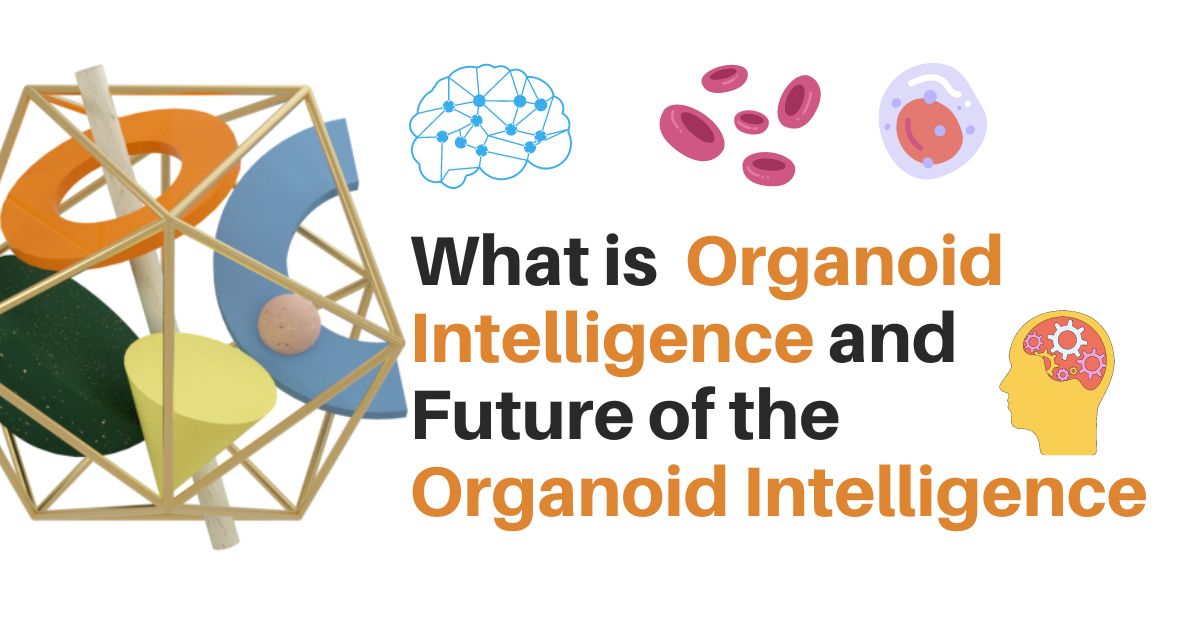You very well know Artificial Intelligence and its impact on humans. But have you ever heard of OI which means Organoid Intelligence? This new technology is going to be the next big thing of this decade.
Scientists at Johns Hopkins University recently coined a new technology that is called Organoid intelligence which will help us to create biocomputers. This is a very speculative and emerging field of research.
In this article, we will discuss what is Organoid Intelligence and how it is different from Artificial Intelligence.
What is Organoid Intelligence?
Organoid intelligence is a type of intelligence created by brain organoids and artificial intelligence. It can be mind-blowing. A brain organoid is a self-assembled stem cell that creates a biological system that can be programmed for a specific purpose. This type of intelligence is a type of synthetic biological intelligence. Organoid intelligence can be created using a brain organoid.
Organoid intelligence refers to the ability of organoids, which are miniature versions of organs grown in the laboratory, to exhibit some level of intelligence or functionality. While organoids are not sentient or conscious, they have been shown to mimic certain aspects of organ function and can be used to study diseases and test drugs more accurately and ethically.
Organoid intelligence could revolutionize biocomputing and its fields. Biocomputing may be the future of computers and intelligence.
How does Organoid Intelligence works?
We all know that artificial intelligence can be created through computer chips and in the same manner organoid intelligence can be created by using biological chips which are made of the human brain organoid.
There is no specific way that organoid intelligence works.
However, the term “organoid intelligence” may be used to describe the potential for organoid research to contribute to the development of more biologically-inspired artificial intelligence (AI) models. For example, by studying the behavior and characteristics of organoids, researchers may be able to develop AI models that are better able to mimic the complexity and adaptability of biological systems.
Organoids are 3D structures that are derived from stem cells or other types of cells and are designed to mimic the structure and function of a specific organ in the body. Organoids can exhibit some degree of self-organization, electrical activity, and responsiveness to stimuli, suggesting that they may possess some rudimentary form of intelligence.
By studying these properties and developing models based on them, researchers may be able to create AI systems that are more biologically inspired and better able to adapt to changing circumstances, learn from experience, and make decisions in a way that more closely resembles human cognition. However, this is still an emerging field of research, and much more work is needed to fully understand the potential applications and limitations of organoid-based AI models.
How Organiod Intelligence is Diffrent From Artificial inteliggence
As organoid intelligence is a concept today and research works are being done on the OI. Therefore, it is difficult to draw a direct comparison between organoid intelligence and artificial intelligence (AI).
As we know that artificial intelligence is obtained from the programs of classical computers. On the other hand, organoid intelligence is obtained from biological systems.
Future of the Organoid Intelligence
The future of organoid intelligence is likely to involve further advancements in the technology used to create and manipulate organoids, as well as continued exploration of their potential applications. Here are some possible directions that the field of organoid intelligence might take in the future:
Brain organoids: Researchers have already created brain organoids that exhibit some level of neural activity and can be used to study brain development and disorders. In the future, brain organoids may become even more sophisticated, allowing for the study of more complex neural processes and the development of new treatments for brain-related diseases.
Organoid networks: While organoids are typically grown as individual structures, researchers are beginning to explore the possibility of linking multiple organoids together to create more complex systems. For example, a network of organoids representing different parts of the digestive system could be used to study the interactions between organs and the effects of drugs on the entire system.
Integration with artificial intelligence: As organoids become more sophisticated, there may be opportunities to integrate them with artificial intelligence (AI) systems. This could enable organoids to learn and adapt to changing conditions, and potentially even communicate with each other in a more advanced way.
Personalized medicine: Organoids grown from a patient’s cells could be used to test drugs and treatments in a more personalized manner, potentially leading to more effective and targeted treatments for a wide range of diseases.
Overall, The future of organoid intelligence is bright, and there is much to be explored and developed in this exciting field. As technology continues to advance, organoids are likely to become even more sophisticated, allowing for more accurate and personalized disease research and drug development.
The field of organoid intelligence is still in its early stages, and there is much to be explored and developed in the years to come. However, it is clear that this technology has the potential to revolutionize our understanding of organ function and disease, and could lead to new treatments and therapies that are more effective and personalized than ever before.




